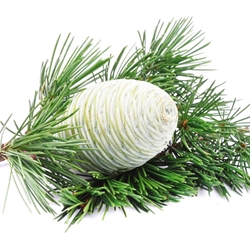 img: shop.perfumersapprentice
img: shop.perfumersapprenticeNatural
Delivers a warm, woody character with dry, resinous facets that carry subtle spicy and animalic undertones typical of true cedar woods.
Odor Strength
Medium
Odor Type
Woody
How perfumers typically use Cedarwood Atlas Oil Pn in their compositions.
1 formulas
Fragrance styles and categories where Cedarwood Atlas Oil Pn appears most often.
1 formulas
Luebke, William tgsc, (1992): Dry woody spicy old wood cistus
Pell Wall Perfumes: Balsamic, woody, oriental, floral-cassia & mimosa
Arctander tells us that cedarwood atlas “essential oil is also known as “moroccan” cedarwood oil. the oil is entirely different—chemically and olfactorily—from the american virginia or texas cedarwood oils. the tree, cedrus atlantica, is a pine, not a cypress (such as the american and east african cedars). it is believed that the atlas cedar is originated from the atlas cedarwood famous lebanon cedars which grow wild in lebanon and in the island of cyprus, now protected from being felled for essential oil.”
Firmenich: A clean and very precise olfactive profile
IFF: Very strong, long lasting and powerful woody note with spicy, orris, amber, leathery and bitter almond effects
Robertet: Woody, leather, ambery, floral and fruity
Fractionation and blending of the mostwoody, leathery, floral and ambery selected fractions of cedarwood atlas essential oil.
IFF: Sweet woody note with a milky warm undertone characteristic of the atlas origin
Albert Vieille SAS: Mild and woody, with warm and animalic facets
The atlas cedar, a monumental and majestic tree, can grow 40 meters high and over two meters in diameter. the pyramidal shape it takes on when younger changes as the tree ages. over time, the heavy branches extend horizontally, forming a tree with a flattened top. cedar has evergreen foliage of dark-green to bluish needles arranged in dense rosettes on short stems. the purportedly rot-impervious wood exudes a delicate, resinous fragrance and is the source of the extracted essential oil. the atlas cedar is a protected species. the wood used to produce the essential oil comes exclusively from moroccan sawmills. these businesses, which focus on manufacturing furniture, provide sawdust and trunk shavings for distillation. atlas cedar essential oil is mild and woody, with warm and animalic facets.
 img: shop.perfumersapprentice
img: shop.perfumersapprentice